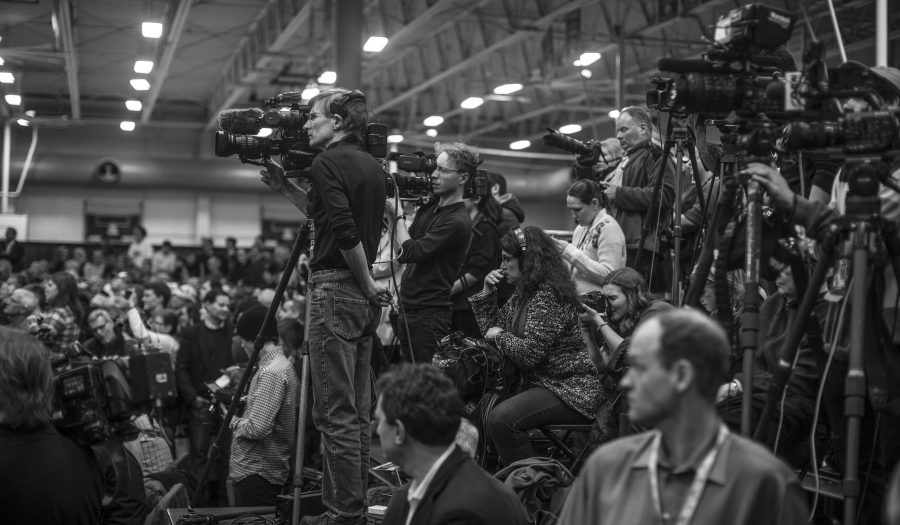UI students say the mainstream media are contributing to a destructive American political discourse.
By Molly Hunter
molly-hunter@uiowa.edu
University of Iowa sophomore Josiah Argo, a self-identified moderate libertarian, said he believes the mainstream media have played a role in creating a divisive political atmosphere in the U.S.
“I’d say it’s probably more a shared thing between mainstream media and social media,” Argo said. “More now than before, people have been able to ‘echo-chamber’ themselves.”
Argo, who studies economics and business analytics information systems and also serves as vice president of Young Americans for Liberty at the UI, isn’t alone in this belief.
Dylan Worcel, a junior majoring in journalism and mass communications with a certificate in human rights, also said the media have contributed to political division in the U.S. Worcel supported Sen. Bernie Sanders, D-Vt., during the caucuses and Hillary Clinton after she was chosen as the Democrat’s presidential candidate.
“A lot of the spin will be inserted in the mainstream media outlets … and I think that gets really frustrating to people,” said Gina Jochimsen, a UI senior studying journalism and mass communications and political science. “They’ll take something that a GOP lawmaker or President Trump himself or his administration says, and they’ll spin it to one way or the other.”
Jochimsen identifies as a conservative.
She said when people feel their sides aren’t being represented inaccurately or unfairly by a media organization, they’re more likely to lean into the echo chamber of what they believe in.
“A liberal’s going to tend to listen to the mainstream media, and a conservative’s going to be more [likely] to listen to Fox News or any other conservative outlet,” Jochimsen said. “It enforces the echo chamber a little bit more, and I think we need to get away from that.”
Jochimsen is a former DI reporter.
RELATED: Guest opinion: Hope for finding common ground at UI
It’s on people to diversify their sources of information, Argo said.
“[People] need to branch out and follow pages they don’t agree with and make more friends with people they don’t agree with,” he said. “Broaden your horizons; diversify what you watch.”
Jochimsen said it’s also important for people to be critical consumers of the media whose views align with theirs. For example, she said, she watches and agrees with a lot of what Fox News puts out, but she’s aware it puts its spin on things and is sometimes reluctant to criticize President Trump.
“From the media’s perspective, I’d say they need to be a lot more unbiased,” Argo said.
“Rather than actively trying to push your own agenda, present the news as unbiased as you can.”
Jochimsen said it’s time for news media outlets to do a better job of representing all political groups.
“I know people like to criticize Fox News for being so conservative, and I totally understand where they’re coming from on that,” Jochimsen said. “But I also believe that they do a good job of having … one person from the right, one person from the left, and have them go at it, rather than the moderators or the interviewers themselves insert their own opinions.”
Jochimsen said the media should also do more to distinguish hard news from advocacy news.
Right now, Worcel said the media’s presentation of political discourse often feels messy and chaotic.
“There’s just a lot of bias, and we never know what the actual truth is and how to dissect everything,” he said.



